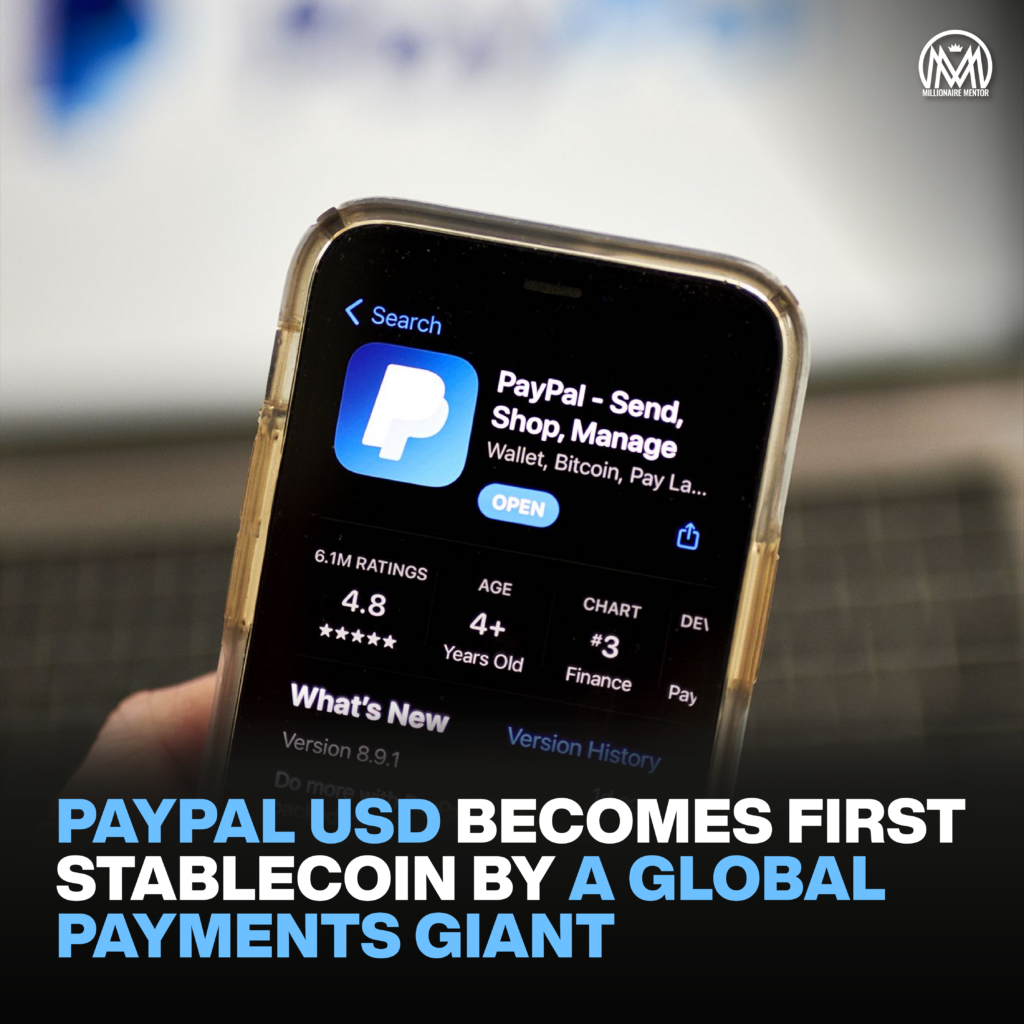The financial technology landscape is undergoing a significant transformation, and one of the latest developments is the integration of stablecoins into mainstream financial services. A leading player in the digital payments industry, Paypal sees stablecoins as a potential revenue generator through payment flows. This move not only highlights the growing acceptance of cryptocurrencies but also underscores the company’s commitment to innovation in the financial sector.
Paypal Sees Stablecoins.
Stablecoins are a unique category of cryptocurrencies designed to minimize the price volatility commonly associated with other digital assets like Bitcoin and Ethereum. These digital tokens are typically pegged to a stable asset, such as a fiat currency like the US Dollar or a commodity like gold. The aim is to provide users with the benefits of blockchain technology while maintaining a stable value, making them more suitable for everyday transactions and financial services.
PayPal’s Forward-Thinking Approach.
PayPal’s exploration of stablecoins as a revenue stream demonstrates its forward-thinking approach to digital finance. The company has been a significant player in the payments industry, enabling users to send and receive money, shop online, and conduct various financial transactions through its platform. Its recent foray into the cryptocurrency space has been met with enthusiasm, and now, by considering stablecoins, PayPal is poised to expand its offerings further.
Generating Revenue Through Payment Flows.
One of the intriguing possibilities that PayPal sees with stablecoins is the potential to generate revenue from payment flows. Traditionally, financial institutions generate income through interest on deposits, transaction fees, and various service charges. With the integration of stablecoins, PayPal could tap into the growing popularity of digital assets and leverage their utility for cross-border payments, remittances, and even micropayments.
The key advantage of stablecoins in this context is their efficiency and cost-effectiveness. Traditional cross-border transactions can be marred by high fees, delays, and currency conversion charges. Stablecoins, on the other hand, can facilitate near-instantaneous transfers with minimal fees, making them an attractive option for users seeking swift and affordable cross-border payment solutions.
Mitigating Volatility Risks.
One of the primary challenges in the adoption of cryptocurrencies for mainstream financial services has been the volatility of their value. However, stablecoins alleviate this concern by maintaining a consistent value tied to a stable asset. This feature makes stablecoins a more reliable choice for users and businesses engaging in transactions, as they don’t need to worry about the value fluctuating dramatically between the time of initiation and settlement.
Broader Implications for the Industry.
PayPal’s exploration of generating revenue through stablecoin payment flows has broader implications for the financial industry. As a prominent player, PayPal’s embrace of stablecoins signals growing acceptance and legitimacy for this form of digital asset. This acceptance could potentially pave the way for more traditional financial institutions to integrate stablecoins into their operations, fostering greater adoption and innovation in the sector.
Challenges and Regulation.
While the potential benefits of utilizing stablecoins for revenue generation are promising, there are challenges and regulatory considerations that need to be addressed. Regulatory bodies around the world are actively examining the use of stablecoins and their potential impact on financial stability, consumer protection, and anti-money laundering efforts. Striking the right balance between innovation and regulatory compliance will be crucial for the success of such initiatives.
PayPal’s strategic focus on stablecoins as a means of generating revenue from payment flows showcases the company’s commitment to staying ahead of the curve in the ever-evolving financial technology landscape. As cryptocurrencies and blockchain technology continue to reshape traditional financial services, the integration of stablecoins into mainstream platforms like PayPal could mark a significant step towards a more efficient and inclusive global financial ecosystem. However, this move also brings with it a set of challenges that require thoughtful consideration and collaboration between industry players and regulatory authorities.


Trending News Articles
 This DIET Made Me More Successful | Patrick Bet-Davidby Jason Stone●July 16, 2022
This DIET Made Me More Successful | Patrick Bet-Davidby Jason Stone●July 16, 2022 Storytelling: How Billionaires Network | Andrew Tateby Jason Stone●May 20, 2022
Storytelling: How Billionaires Network | Andrew Tateby Jason Stone●May 20, 2022 STOP Complaining START Working – Inspirational Videoby Jason Stone●April 24, 2021
STOP Complaining START Working – Inspirational Videoby Jason Stone●April 24, 2021 ‘They’re F***ed’ | Joe Rogan On Canada’s Future & Justin Trudeauby Jason Stone●July 30, 2022
‘They’re F***ed’ | Joe Rogan On Canada’s Future & Justin Trudeauby Jason Stone●July 30, 2022






